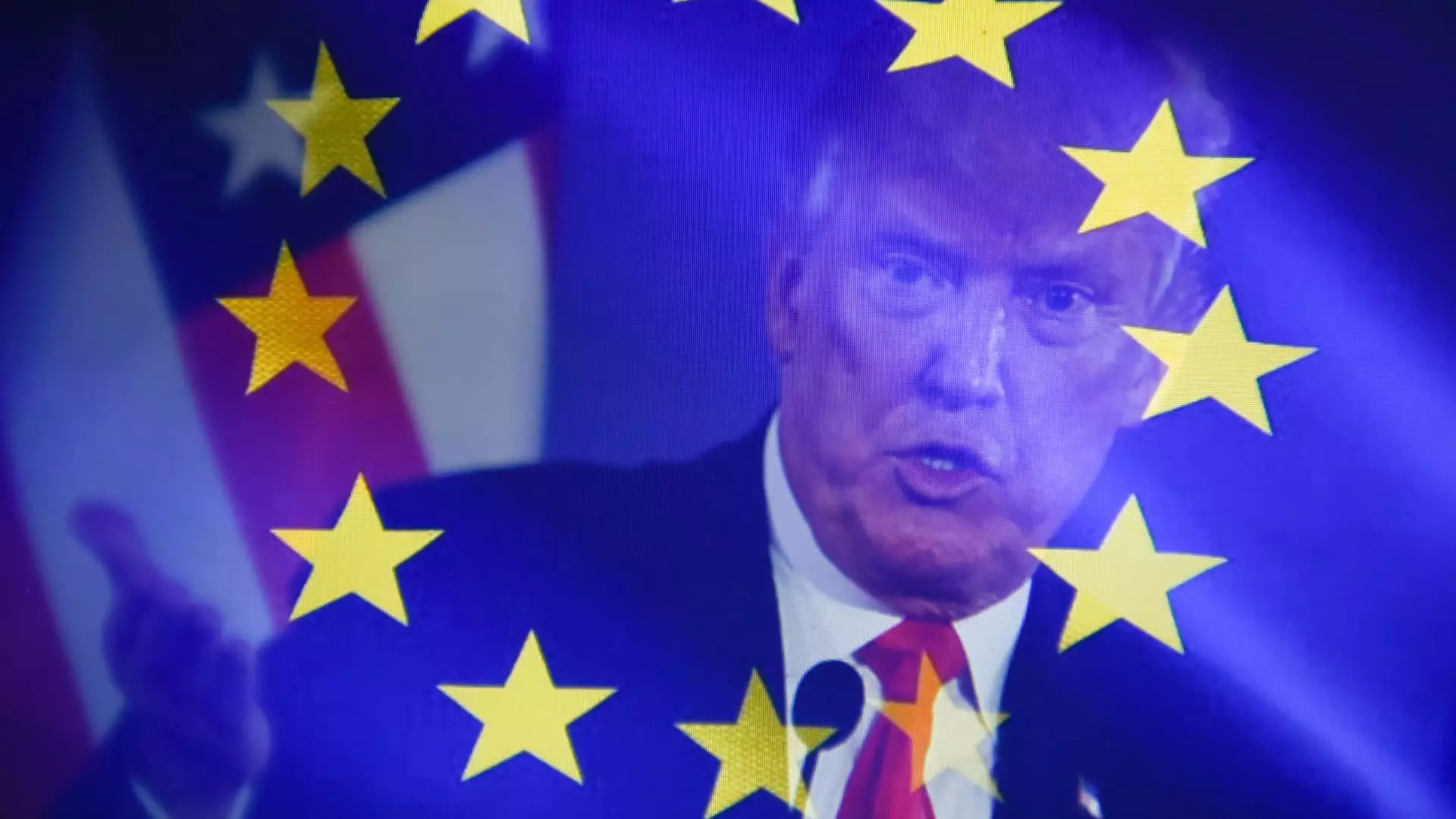The recent tug of war over tariff policies between the European Union (EU) and the United States is emblematic of a deeper malaise afflicting international trade. Initiated by an aggressive stance from the U.S. administration led by President Trump, this geopolitical dance of economic sanctions has created a ripple effect not just across the Atlantic, but also around the globe. The backdrop of this tension showcases how interdependent economic frameworks are being tested against a rising tide of isolationism and protectionism.
In a striking move, European Commission President Ursula von der Leyen announced a temporary halt to its retaliatory tariffs on U.S. goods for a period of 90 days. This decision comes hot on the heels of the U.S. administration easing its stance on certain tariff rates in an effort to facilitate negotiations. While on the surface this appears to be a diplomatic olive branch, the underlying implications invite skepticism about the futility of such pauses in a fundamentally adversarial economic landscape.
Negotiation or Negotiation Games?
Von der Leyen’s proclamation of a “chance for negotiations” followed the U.S. announcement is emblematic of a strategy that leans toward appeasement rather than a robust defense of European interests. The EU’s initial response to the U.S.’s implementation of 25% tariffs on essential materials like steel and aluminum was significant and bold. The withdrawal of this retaliatory power poses questions about the EU’s long-term strategy in what appears to be less of an economic negotiation and more of a high-stakes poker game where the chips keep getting pulled back.
The core issue here is not merely about tariffs; it strikes at the heart of economic sovereignty and fairness. Is the EU truly negotiating from a position of strength, or are they simply allowing an aggressive U.S. administration to dictate terms? As von der Leyen herself has pointed out, tariffs essentially act as taxes that burden consumers and stifle innovation—yet the EU finds itself in a position where it is forced to play along with a U.S. playbook that has historically favored unilateral decision-making.
Market Reactions: A Double-Edged Sword
The immediate financial markets reacted positively to the news of a temporary tariff reprieve, with U.S. stocks soaring as investors breathed a sigh of relief. Yet, this reaction raises deeper questions about the fragility of market stability in the face of such vacillation. Short-term gains can be enticing, but they often overlook the long-term consequences of an economy in turmoil. The decisions made today may be celebrated tomorrow but ultimately serve to undermine the very foundation of global trade relationships.
Moreover, the volatility induced by such tariff negotiations detracts from essential economic planning. Businesses and consumers alike suffer from the uncertainty these tariffs create—now more than ever, the stakes are high. Von der Leyen’s assertion that work continues on “further countermeasures” suggests an underlying tension where readiness for escalation may be prioritized over building sustainable economic relationships.
Broader Implications for Global Trade
The EU’s trade dilemma doesn’t conclude with tariffs and countermeasures; it reflects a larger existential question about the future of transatlantic relations. Both infrastructures of cooperation and trade have been battered by U.S. decisions that many argue are driven by misconceptions of unfair trade practices. As Trump casts the EU as an unfair trading partner, it’s vital to problematize this narrative and question whether the EU has the strength and unity to respond effectively and cohesively to such accusations.
Lastly, the ongoing trade negotiations reveal a troubling trend where the EU may feel compelled to diversify its economic partners. While diversification is a strategic move, it risks fragmenting established relationships and undermining the cooperative spirit that has underpinned the post-war European economic landscape. The United States’ unilateral shift threatens to tilt the scales of international trade negotiations, sending ripples across multiple sectors, including technology, a cornerstone of future global economies.
In these uncertain times, the EU must navigate its course carefully, for the decisions made today will inflect the trajectory of future economic relationships and define the parameters of international cooperation. As tensions mount, the imperative for innovation stands in stark contrast to the archaic rhetoric of protectionism that too often overshadows the potential for joint progress. Whether this pause in hostilities can pivot toward meaningful dialogue remains to be seen—but one thing is clear: the clock is ticking on finding a viable resolution.

Leave a Reply